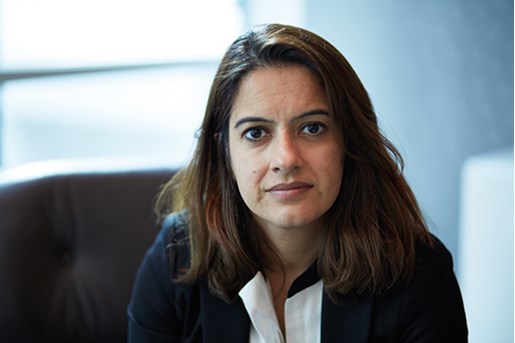The Supreme Court has handed down their judgment in the case of Ilott v The Blue Cross & others. The case saw three animal charities overturn the Court of Appeal's judgment in the case of an adult child left out of her mother's will.
The Supreme Court unanimously allowed the charities' appeal and overturned the decision of the Court of Appeal, reinstating the judgment at first instance and the award of £50,000 to the claimant. The Court of Appeal had increased the award.
Background
In English law, an individual has freedom of testamentary disposition – that is, they can leave their estate to whoever they like. However, the Inheritance (Provision for Family and Dependants) Act 1975 ("the 1975 Act") provides for family members to make claims against an estate if they have not received reasonable financial provision. The question of what constitutes "reasonable financial provision" is often difficult to assess.
Before the success of the claimant in the case of Ilott v The Blue Cross & others at first instance and then the Court of Appeal, it was generally thought that it was difficult for an adult child, who was capable of supporting themselves financially, from making a successful claim to a deceased parent's estate under the 1975 Act. This was particularly the case where there had been a period of long estrangement between parent and adult child.
In the case of Ilott v The Blue Cross & others, the mother had left her estate to animal charities and made it absolutely clear that her daughter, the claimant, who had been long estranged, was not to receive anything from her estate. The judgment of the Court of Appeal, in increasing her award from the estate, surprised many practitioners.
Today's Judgment
Today the Supreme Court made it clear that the beneficiaries under a testator's Will do not need to justify their entitlement – being the testator's choice is enough. Although the claimant in this case will still receive a sum of £50,000 from the estate, the judgment reinforces the principle of freedom of testamentary disposition whilst highlighting the difficultly in balancing this principle with family needs and obligations.
The judgment sets out a framework for approaching these types of cases. It makes clear that:
- the 1975 Act requires a broad brush approach from the judge to very variable personal and family circumstances;
- the order of the judge at first instance ought only to be upset if he or she has erred in principle or in law and an appellate court should be very slow to interfere and should never do so simply on the grounds that its judge(s) would have been inclined to reach a different conclusion (which highlights the subjective nature of these claims); and
- the limitation of such a claim (by an adult child) to what is reasonable for their maintenance is important and was a deliberate legislative choice.
The Supreme Court also recognised that charities depend heavily on testamentary bequests for their work, which is by definition of public benefit and in many cases will be for demonstrably humanitarian purposes. Fundamentally, in this case, they were the chosen beneficiaries of the deceased and they do not need to justify a claim to the estate – it is enough that the testator chose them.
The Court also recognised that a long period of estrangement and the testator's very clear wishes were important factors to take into account and commented that it could not be ignored that an award under the Act is at the expense of those whom the testator intended to benefit.
Lady Hale has made a supplementary judgment which deals head-on with the conflict between freedom of testamentary disposition and family needs and obligations stating:
"This case raises some profound questions about the nature of family obligations, the relationship between family obligations and the state, and the relationship between the freedom of property owners to dispose of their property as they see fit and their duty to fulfil their family obligations. All are raised by the facts of this case but none is answered by the legislation which we have to apply or by the work of the Law Commission which led to it."
Lady Hale's supplemental judgment raises important questions about how we as a society balance the freedom of a person to leave their estate to whoever they wish against the potential family needs or perceived obligations. She concludes that the law is in an unsatisfactory state and it will be interesting to see what, if any, notice Parliament takes of this decision and the supplemental judgment.
Our conclusion
The judgment is very welcome and will be of great importance to those making or defending a claim under the 1975 Act. It does however also remind us of the difficulties in balancing competing claims to an estate, and the value judgment likely to be necessary in each case.
It is also good to see the Supreme Court remind us that charities do not need to justify a claim to an estate - if the deceased has chosen them to benefit, that should be enough. Charities, by very definition, do good works and are heavily reliant on inheritances. They have certainly seen an increase in these types of claim where they have received funds from an estate.
The Supreme Court also confirmed that the wishes of a testator are important and a long period of estrangement between parent and child is a significant factor, which must surely be the case when evaluating these types of claim.
Notes
Our Private Capital Group provides bespoke services and solutions on both a national and international scale. The Group's client base includes entrepreneurs, business executives, landowners and trustees, all of whom benefit from its unique position within a large, commercial law firm.
The Trusts and Estates Dispute Group frequently advises on contentious trust and probate matters, including 1975 Act claims and trust disputes. The team recently acted for the successful defendant in the high profile case of Wooldridge v Wooldridge, which is believed to feature the highest value estate in any reported cases under the 1975 Act.




